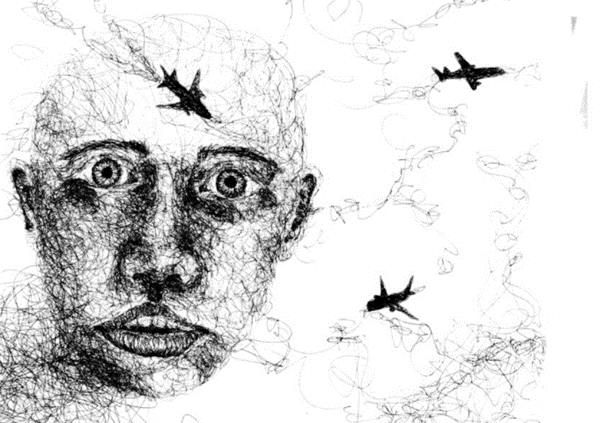The Weekly Reflektion Week 14/2021
Do you remember where you were when the Twin Towers collapsed? Are you certain?
Flashbulb memory is a highly detailed, vivid snapshot of a moment and circumstances, but is it reliable?
Thanks to Tiril Pollard for this Reflektion and for keeping me on the straight and narrow!

If you ask anyone where they were when the two aeroplanes crashed into the World Trade Centre on September 11th, 2001,most will give emotional data about what they were doing at that moment, how it felt and what they experienced. These vivid snapshots are called ‘flashbulb memories’, a term coined by the researchers Brown and Kulik1 in their 1977 study on the phenomenon and are often considered very reliable memories of shocking and personally relevant events and thus resistant to being forgotten.
Neisser and Harsch2 carried out a classic study on flashbulb memory in 1992, which addressed such memories’ accuracy. Flashbulb memories are remembered with extraordinary vividness and confidence, and we often feel they are accurate. The researchers had students recall their reactions to the Challenger disaster, the space shuttle which exploded soon after take-off on January 28th, 1986, as it was being broadcast live on television. On the morning after the disaster, 106 students enrolled in a psychology class received a questionnaire. It consisted of the following questions:
- What time was it?
- How did you hear about it?
- Where were you?
- What were you doing?
- Who told you?
- Who else was there?
- What did you do afterwards?
Two and a half years later, 44 of the students who were still attending the university received the original questionnaire to fill in again. To compare the responses, points were given if the answers matched, with the maximum score being 7. The mean score was 2,95, with 11 scoring nil. Twenty-two of the 44 scored two or less. Interestingly, despite the lack of accuracy, the average level of confidence in their recollections on a scale of 1 (just guessing) to 5 (absolutely certain) was 4,17. When the participants saw their original questionnaires, they were surprised and could not account for the discrepancies.
Reflekt performs many investigations where eyewitness memories are vital to building a mental model of any circumstances relevant to the incident. It is crucial to interview the involved people immediately after the event. People’s recollections can be influenced by many factors, for example, talking to others involved. The passage of time may distort the memories, possibly very quickly. This makes the investigation team’s job particularly difficult if the start-up of an investigation experiences delays. One mitigating action that can avoid distortion in memory recall is for all the involved people to give written witness statements as soon as possible after the incident so that any deviations will hopefully become clear in case of distortion.
Flashbulb memories become relevant when there is pressure to re-open an investigation due to disagreements as to what happened. Beware of memories of those involved; distortions are the rule rather than an exception.
1 Brown & Kulik (1977) Flashbulb memories
2 Neisser & Harsch (1992) Phantom flashbulbs: False recollections of hearing the news about Challenger.
